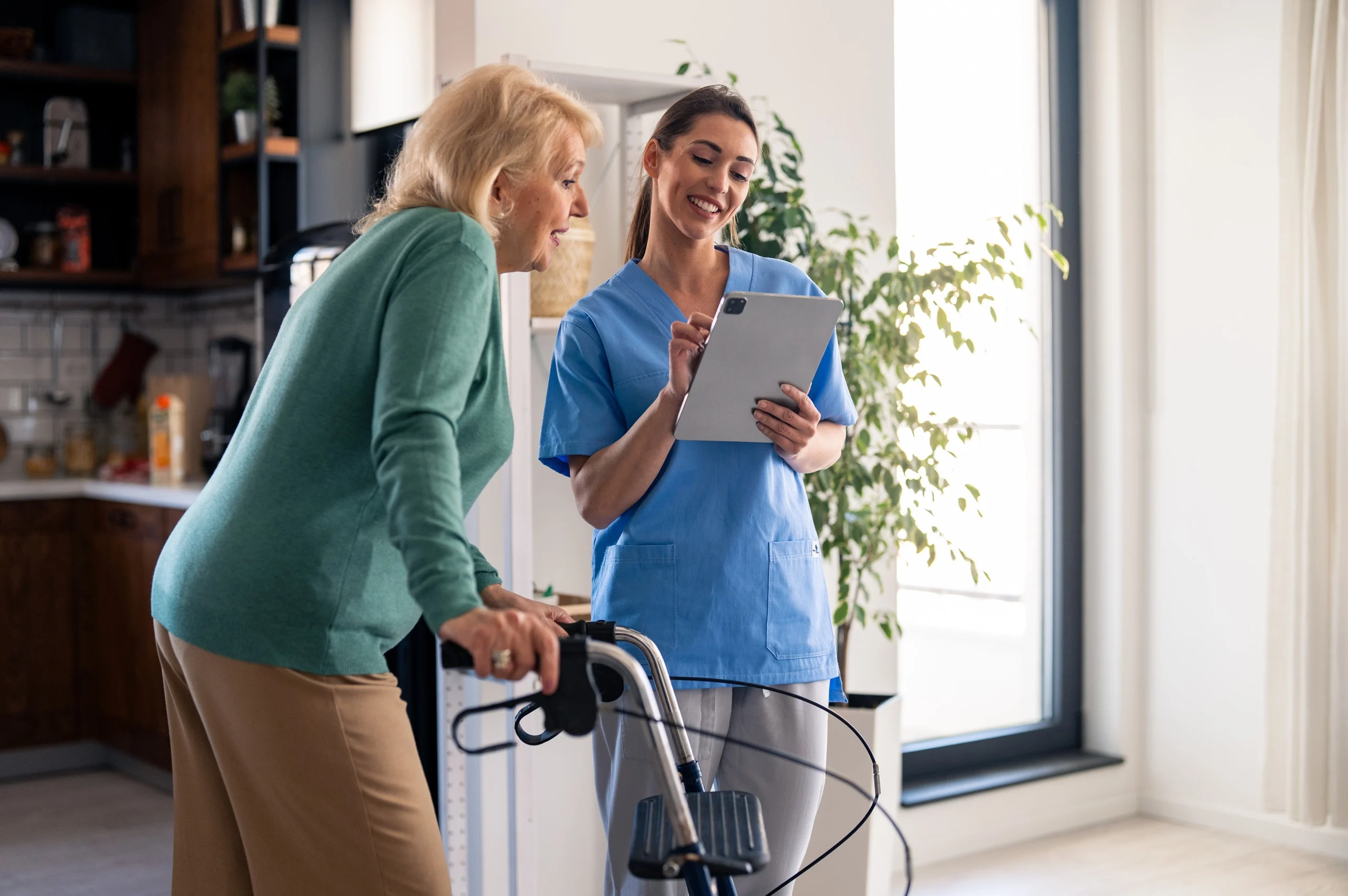Everyone knows that eating a healthy and nutritious diet can add years to a person’s lifespan and improve the quality of their life. However, there is a lot of debate about what constitutes a “healthy and nutritious diet” for seniors. There is also a lot of misinformation about when seniors should eat and how much they should eat. This article will take a look at some of the most common senior nutrition myths and explain how home care services can help older people enjoy a nutritious (and delicious) diet!
The most common senior nutrition myths
Myth #1 — It is ok for older people to skip meals
As people age, they often lose their appetite for food. This usually occurs because they are more inactive, they are on medications that affect their appetite or they are experiencing dental problems. When seniors lose their appetite, they often skip meals.
While it may be fine to skip a meal occasionally, doing so on a regular basis can negatively impact a person’s well-being. Skipping a meal causes blood sugar levels to drop, which greatly increase the risk of having a fall. The body’s internal organs will also struggle without a consistent flow of nutrients throughout the day.
Myth #2 — Older people require fewer nutrients
While it is true that older people do not require as many calories as a younger person, they still require a balanced diet that is high in nutrients. Additionally, older people actually require more of certain nutrients. Seniors should be eating a diet rich in Vitamin D, Vitamin B12, Folate/Folic acid, B6, Calcium, Potassium, Magnesium, fiber, and Omega-3 fatty acids.
Myth #3 — You only need to drink water when thirsty or after exercising
Many seniors mistakenly believe that they only need to drink when they are thirsty. They often go through the entire day without drinking water or only having a few cups of tea or coffee.
Researchers have discovered that the human body greatly benefits from drinking more water. This is particularly true for older people who may be taking medications that impact their kidney function. Drinking more water will help the body rid itself of toxins and metabolize drugs. Drink at least 4 to 5 glasses of water per day.
Myth #4 — Being moderately overweight means you are strong and healthy
A few years ago, there was a highly publicized study that suggested seniors who are moderately overweight enjoy slightly longer lifespans. Many seniors took this advice on board and began eating larger meals to put on more weight!
Unfortunately, there are many other studies suggesting that being overweight will shorten a person’s lifespan. Overweight seniors are also more likely to acquire diabetes, Alzheimer’s disease, stroke and heart disease.
Myth #5 — It is ok to eat alone
Many seniors who live alone will also prepare their own meals and eat alone. Unfortunately, seniors who are only cooking for themselves will often eat unhealthy meals that do not contain the nutrients necessary for good health.
Psychologists have found that eating alone can also exacerbate feelings of loneliness and increase a person’s anxiety levels. Eating is a social activity and enjoying a meal with company can greatly increase a person’s quality of life.
Myth #6 — If you are at a healthy weight you can eat anything you like!
Many seniors who are at a healthy weight often think they can eat any kind of food that they find interesting. Ice cream for lunch, lots of candy after dinner and very fatty foods. Unfortunately, these foods can negatively impact a person’s health even if they aren’t overweight. Foods high in sugar, chemical additives and fat can increase the risk of diabetes, Alzheimer’s disease and heart disease.
Myth #7 — Older people don’t need to worry about nutrition
Some seniors think that because their life is in its final phase, nutrition is less important. If a senior has a serious health condition, they often believe that this condition will end their life before their eating choices can make a difference. Unfortunately, having poor nutrition can exacerbate the symptoms of certain health conditions, make the side effects of drugs worse and negatively impact a person’s quality of life.
Eating well means a senior can truly make the most of their time left on earth. They will have more energy, feel fitter, be less likely to become ill and experience fewer side effects from medications.
Myth #8: Vitamin supplements can guarantee good health
While vitamin supplements can be useful, they should not be relied upon for obtaining your nutritional requirements. Taking large doses of vitamin supplements to meet nutritional requirements can cause constipation or diarrhea. The body can also struggle to process vitamin tablets, potentially leading to malnutrition. A nutritious diet should always be the primary source of vitamins and minerals.
Myth #9: Seniors should eat low fat foods to avoid heart disease
In the past few decades, fatty foods have received a lot of bad press! Many seniors began buying fat reduced foods to improve their health. Unfortunately, many of those foods were very high in sugar, which can cause some very serious health issues. Care should be taken to avoid “low-fat high in sugar” foods. Seniors should also be encouraged to eat foods that contain healthy fats, like avocados, salmon, tuna, and olive oil. These foods can greatly improve a senior’s health.
How All Heart Home Care Can Help
All Heart Home Care can help develop meal plans that are specifically tailored to each client’s nutritional requirements and personal preferences. Our caregivers can prepare meals in the comfort of the client’s home.
Caregivers can sit with the client and provide some companionship while they eat the meal, then take care of all of the dirty dishes afterwards. Our caregivers will ensure that the client receives their meals and snacks throughout the day, in accordance with their meal plan.
All Heart Home Care can also take care of other tasks around the home including:
- Going grocery shopping for the client
- Cleaning and organizing the kitchen
- Transporting the client to doctor’s appointments and social events
- Helping the client to perform exercises or physical rehabilitation
- General domestic duties around the home
- Helping the client with personal hygiene and getting dressed
- Companionship for the client
If you are interested in learning more about senior nutrition myths and our non-medical home care services, contact All Heart Home Care at 619-736-4677. We offer in-home consultations and would love to discuss the many home care services we provide!







